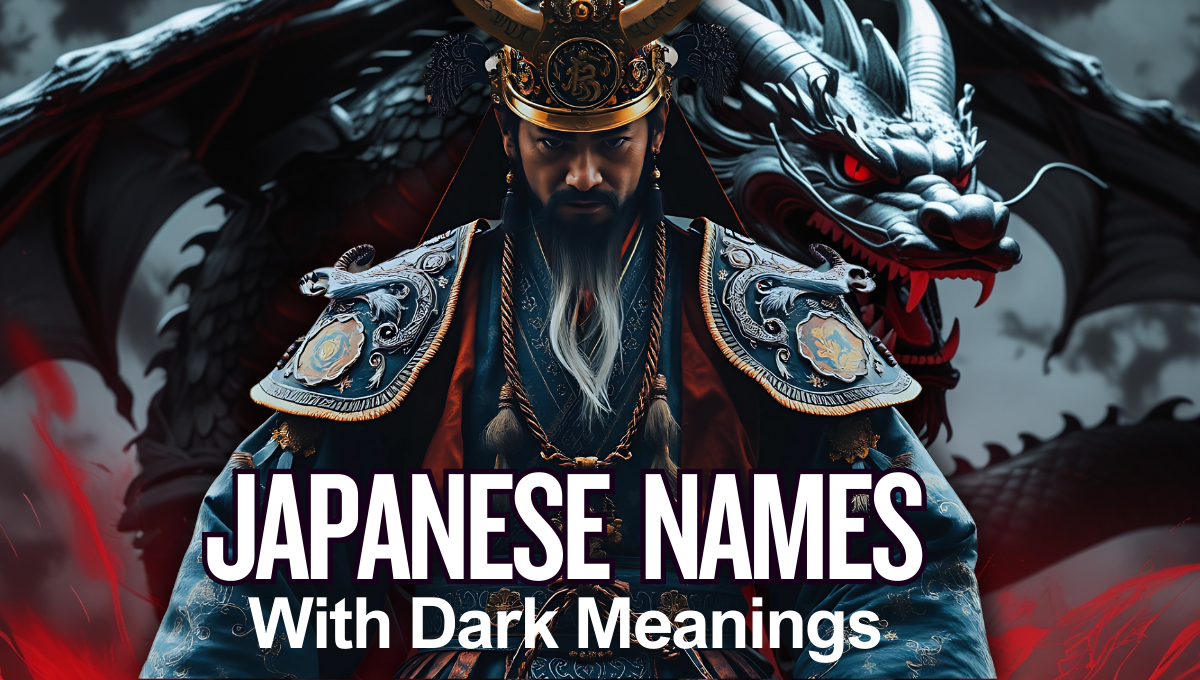“Dark Japanese Names with Meanings” carry significant weight in Japanese culture and often reflect deep beliefs, history, and symbolism. Many names express positive attributes such as strength, beauty, and wisdom. However, some names possess darker or ominous meanings, linking them to ghosts, demons, and supernatural beings in Japanese mythology.
The belief in spirits and the afterlife is deeply rooted in Japanese culture. Names that evoke these eerie elements reveal a long-standing fascination with the supernatural. This blend of light and dark in naming conventions highlights the complexity of cultural identity and the enduring legacy of mythology in Japan.
Japanese Names Meaning Sin
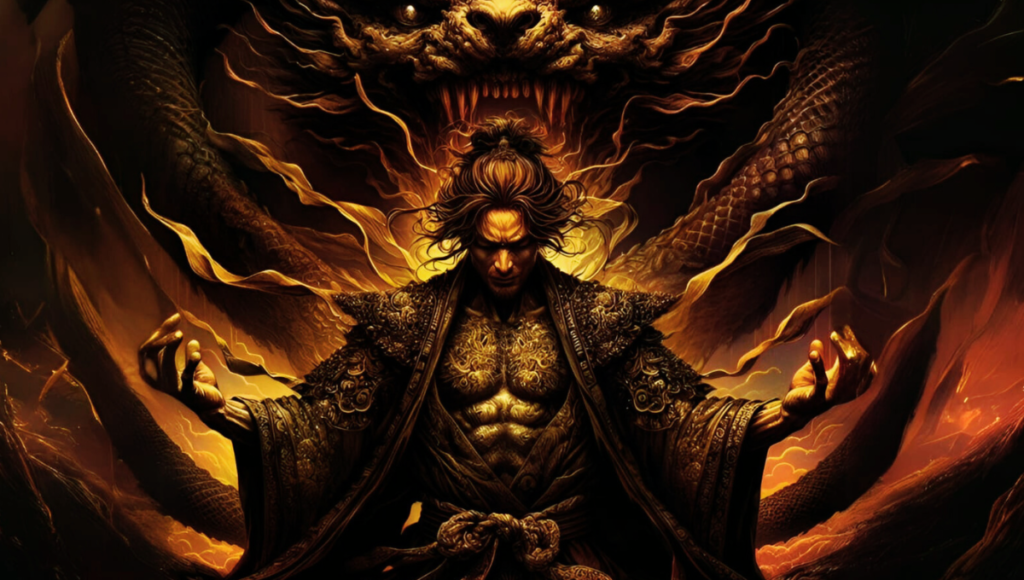
- 背徳 (Haitoku) – Signifies betrayal or moral corruption, representing the concept of sin in Japanese culture.
- 堕落 (Daraku) – Represents moral decay or downfall, often associated with the consequences of sin.
- 罪深い (Tsumi Fukai) – Conveys deep sinfulness or profound guilt, highlighting the weight of moral transgressions.
- 禁忌 (Kinki) – Refers to taboos or forbidden actions, illustrating societal boundaries in morality.
- 悪行 (Akugyō) – Denotes wrongful deeds or sinful actions, emphasizing the dark side of human behavior.
- 呪い (Noroi) – Implies a curse, associated with malevolent acts and the repercussions of sin.
- 不義 (Fugi) – Represents injustice or unfaithfulness, showcasing moral failures in relationships.
- 悪念 (Akunen) – Reflects evil thoughts or malice, indicating the inner workings of a sinful mind.
- 破戒 (Hakai) – Signifies breaking moral precepts, highlighting the struggle against ethical boundaries.
- 背信 (Haishin) – Represents betrayal or disloyalty, a common theme in stories of sin.
- 堕罪 (Dazai) – Implies falling into sin or moral failure, illustrating the journey of moral decline.
- 非道 (Hidō) – Denotes inhumanity or cruelty, often associated with acts of sin.
- 罪名 (Zaimyō) – Represents the name or label of a crime, emphasizing the societal implications of sin.
- 不倫 (Furin) – Refers to infidelity or illicit love, showcasing the complexity of human relationships.
- 悪徳 (Akutoku) – Signifies vice or moral depravity, often depicted in literature and folklore.
- 堕落者 (Darakusha) – Implies one who has fallen from grace, symbolizing the consequences of sin.
- 無道 (Mudō) – Denotes lack of morality or ethical standards, indicating a disconnection from societal norms.
- 誤謬 (Gobyū) – Represents a fallacy or moral error, highlighting the complexities of ethical reasoning.
- 邪心 (Jashin) – Reflects a wicked or malicious heart, often seen as the root of sin.
- 背信者 (Haishinsha) – Denotes a traitor or someone who betrays trust, emphasizing themes of loyalty and sin.
Japanese Girl Names Mean Dark
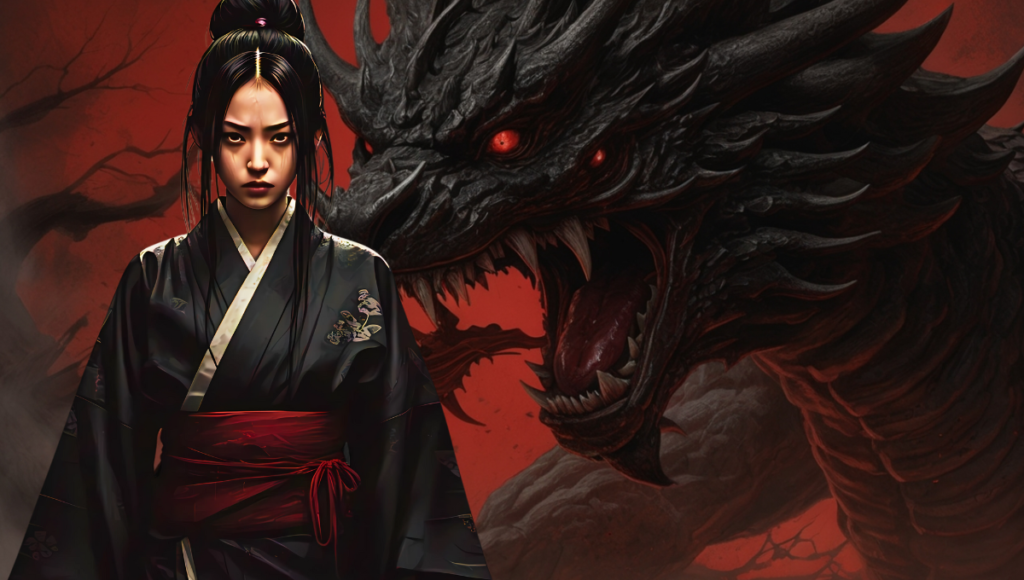
- 闇 (Yami) – Represents darkness or shadow, symbolizing mystery and the unknown.
- 黒羽 (Kuroha) – Signifies black feathers, suggesting elegance intertwined with darkness.
- 夜桜 (Yozakura) – Conveys night cherry blossoms, evoking beauty in the dark.
- 影 (Kage) – Implies shadow or silhouette, representing the duality of light and dark.
- 漆 (Urushi) – Represents deep, dark lacquer, symbolizing sophistication and depth.
- 暗雲 (An’un) – Denotes dark clouds, hinting at storms and foreboding.
- 月影 (Tsuki Kage) – Signifies moonlight shadow, blending light and dark in a poetic way.
- 幽霊 (Yūrei) – Represents a ghost or spirit, embodying the eerie aspects of the supernatural.
- 静寂 (Seijaku) – Conveys tranquility often found in dark settings, suggesting peacefulness.
- 影の少女 (Kage no Shōjo) – Implies shadow girl, hinting at hidden depths and secrets.
- 陰 (In) – Conveys the idea of shade or darkness, emphasizing the hidden aspects of life.
- 夜の女王 (Yoru no Joō) – Signifies queen of the night, embodying elegance and darkness.
- 夜影 (Yokage) – Implies night shadow, enhancing the sense of mystery and allure.
- 闇の花 (Yami no Hana) – Signifies flower of darkness, suggesting beauty amidst shadows.
- 暗い星 (Kurai Hoshi) – Denotes dark star, embodying hidden light and potential.
- 黒影 (Kurokage) – Implies black shadow, enhancing the mysterious allure.
- 月の影 (Tsuki no Kage) – Signifies shadow of the moon, blending light and dark beautifully.
- 闇の使者 (Yami no Shisha) – Represents messenger of darkness, embodying mystery and intrigue.
- 黒猫 (Kuroneko) – Denotes black cat, symbolizing superstition and mystery.
- 暗闇 (Kurayami) – Implies complete darkness, evoking feelings of fear and curiosity.
Japanese Boy Names Mean Dark
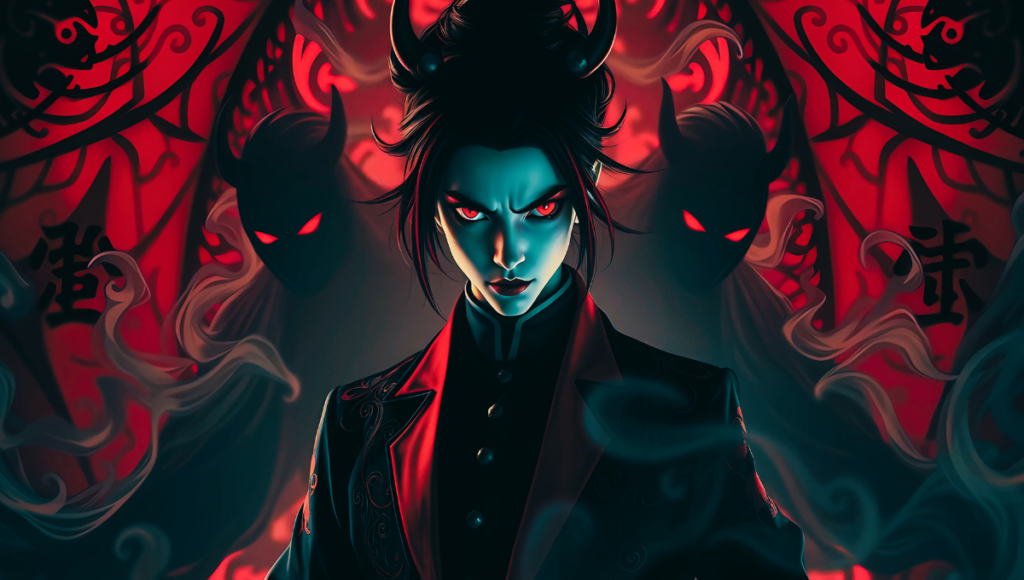
- 黒 (Kuro)– Represents black, symbolizing darkness and strength.
- 暗 (Kurayami) – Denotes darkness or gloom, evoking mystery.
- 夜 (Yoru) – Signifies night, often associated with intrigue and the unknown.
- 鬼 (Oni) – Represents a demon, embodying the darker side of folklore.
- 漆黒 (Shikkoku) – Signifies pitch black, suggesting depth and intensity.
- 冥 (Mei) – Denotes the underworld or dark realm, symbolizing mystery.
- 幽 (Yū) – Implies ghostly or shadowy, reflecting the supernatural.
- 死 (Shi) – Represents death, evoking a sense of finality and darkness.
- 黒狼 (Kuro Ōkami) – Signifies black wolf, symbolizing strength and mystery.
- 闇の騎士 (Yami no Kishi) – Represents knight of darkness, embodying bravery and mystery.
- 暗黒 (Ankoku) – Denotes dark chaos or obscurity, suggesting complexity.
- 漠 (Baku) – Implies vastness or emptiness, often associated with darkness.
- 夜行 (Yagō) – Signifies night traveler, suggesting adventure in darkness.
- 黒竜 (Kuro Ryū) – Represents black dragon, symbolizing power and darkness.
- 影の王子 (Kage no Ōji) – Denotes prince of shadows, suggesting nobility in darkness.
- 暗い道 (Kurai Michi) – Implies dark path, hinting at uncertainty and exploration.
- 黒魔 (Kuroma) – Signifies dark magic, associated with the supernatural.
- 深淵 (Shin’en) – Represents abyss, suggesting depth and the unknown.
- 黒夜 (Kuroya) – Implies black night, suggesting mystery and depth.
- 影の戦士 (Kage no Senshi) – Represents shadow warrior, embodying strength and valor.
Japanese Names Meaning Nightmare
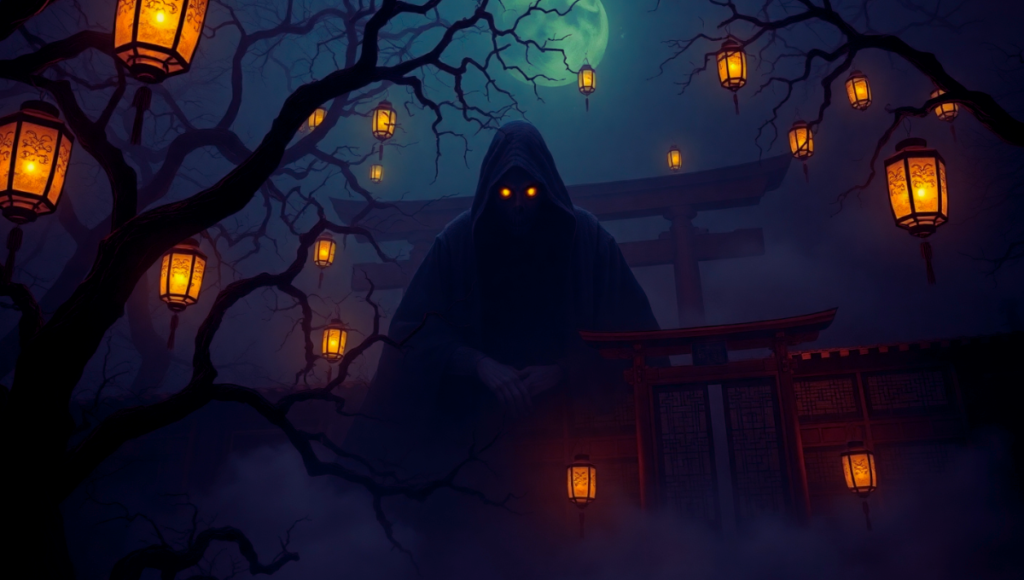
- 悪影 (Aku Kage) – Implies evil shadow, associated with nightmares.
- 呪われた (Norowareta) – Denotes cursed, often linked to dark dreams.
- 悪夢の王 (Akumu no Ō) – Represents king of nightmares, embodying fear.
- 暗い夢 (Kurai Yume) – Signifies dark dream, hinting at deep fears.
- 恐怖の影 (Kyōfu no Kage) – Represents shadow of terror, illustrating fear’s presence.
- 悪域 (Akuiki) – Denotes evil realm, embodying nightmare themes.
- 夢魘 (Muen) – Represents a nightmare or bad dream, highlighting fear.
- 恐怖の夜 (Kyōfu no Yoru) – Signifies night of terror, emphasizing dark experiences.
- 影の夢 (Kage no Yume) – Implies shadow dream, suggesting darkness in dreams.
- 恐怖の使者 (Kyōfu no Shisha) – Represents messenger of fear, illustrating the impact of nightmares.
- 悪夢の騎士 (Akumu no Kishi) – Denotes knight of nightmares, suggesting a battle against fear.
- 暗い幻 (Kurai Maboroshi) – Signifies dark illusion or phantom, representing deceptive fears.
- 恐怖の王 (Kyōfu no Ō) – Represents king of fear, emphasizing the power of nightmares.
- 悪夢の影 (Akumu no Kage) – Implies shadow of nightmares, enhancing the sense of dread.
- 恐怖の深淵 (Kyōfu no Shin’en) – Represents abyss of terror, emphasizing deep fears.
- 夢の牢獄 (Yume no Rōgoku) – Signifies prison of dreams, highlighting the feeling of entrapment.
- 悪夢の道 (Akumu no Michi) – Denotes path of nightmares, illustrating the journey through fear.
- 恐ろしい影 (Osoroshii Kage) – Represents terrifying shadow, evoking feelings of dread.
- 夢の亡者 (Yume no Mōja) – Denotes phantom of dreams, symbolizing haunting fears.
- 悪夢の女 (Akumu no Onna) – Represents woman of nightmares, embodying dark feminine themes.
Japanese Names Meaning Evil
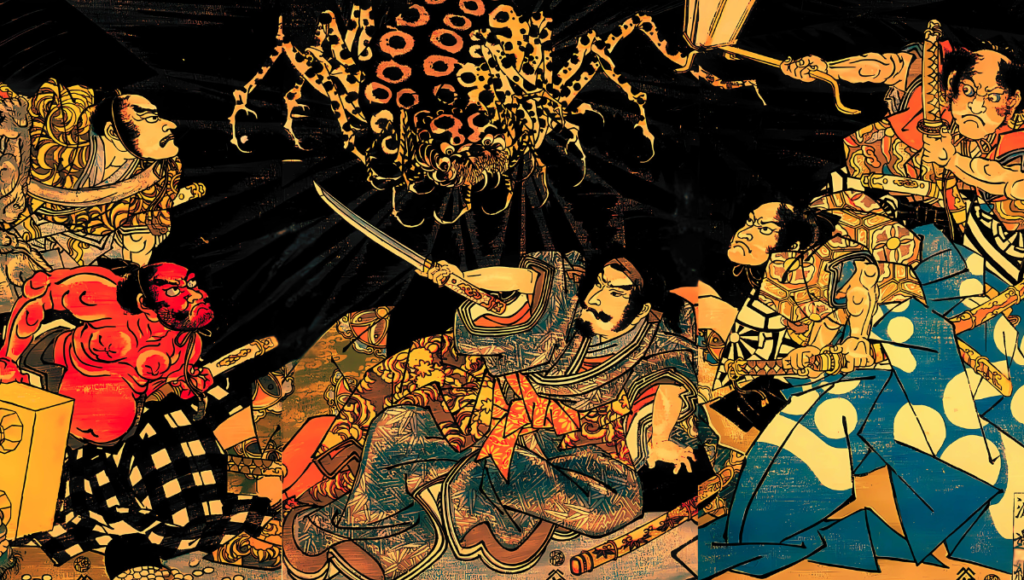
- 邪心 (Jashin) – Implies wicked heart or malicious intent, denoting inner corruption.
- 悪魔 (Akuma) – Denotes demon or evil spirit, symbolizing ultimate evil.
- 凶悪 (Kyōaku) – Represents heinous or atrocious acts, emphasizing extreme wickedness.
- 不幸 (Fukō) – Signifies misfortune or bad luck, often linked to evil deeds.
- 凶兆 (Kyōchō) – Implies bad omen or foreboding, indicating impending doom.
- 悪戯 (Itazura) – Represents mischief or wickedness, highlighting playful yet harmful behavior.
- 暗黒 (Ankoku) – Denotes dark evil or chaos, symbolizing disorder.
- 邪教 (Jakyō) – Implies heretical or evil cult, often associated with dark practices.
- 悪影響 (Aku Eikyō) – Represents negative or harmful influence, indicating the spread of evil.
- 邪霊 (Jarei) – Signifies evil spirit or malevolent force, commonly found in myths.
- 不義 (Fugi) – Represents injustice or wrongdoing, highlighting moral failures.
- 悪意 (Akui) – Denotes malicious intent or spite, reflecting dark motivations.
- 悪因 (Akuin) – Implies source of evil or wrongdoing, indicating the root of malice.
- 凶運 (Kyōun) – Represents ill fortune or bad luck, often seen as a consequence of evil acts.
- 邪道 (Jadō) – Denotes wicked path or immoral way, illustrating choices leading to evil.
- 悪習 (Akushū) – Represents bad habit or vice, emphasizing negative behaviors.
- 悪事 (Akuji) – Implies evil deed or wrongdoing, highlighting the impact of evil actions.
- 不正 (Fusei) – Signifies dishonesty or corruption, emphasizing moral failure.
- 凶器 (Kyōki) – Denotes weapon of evil or harm, symbolizing the tools of wickedness.
- 邪教徒 (Jakyōto) – Implies follower of an evil cult, highlighting the dark side of belief.
Japanese Names Meaning Dark Angel
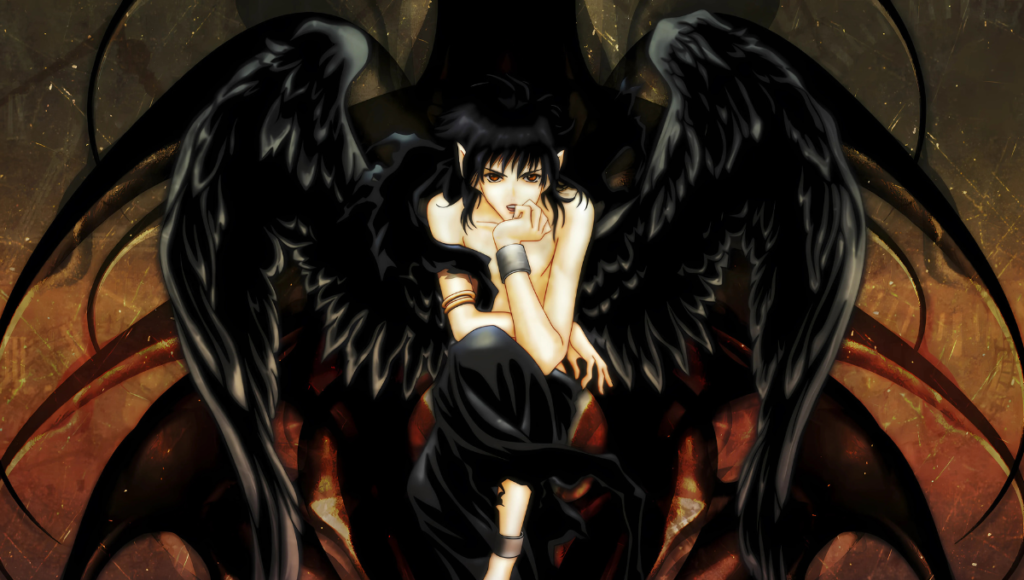
- 暗い天使 (Kurai Tenshi) – Represents dark angel, symbolizing duality in character.
- 影の使者 (Kage no Shisha) – Signifies messenger of shadows, embodying mystery and allure.
- 黒い翼 (Kuroi Tsubasa) – Implies black wings, symbolizing strength and darkness.
- 闇の守護者 (Yami no Shugo-sha) – Denotes guardian of darkness, illustrating protection amidst shadows.
- 死の天使 (Shi no Tenshi) – Represents angel of death, embodying the inevitability of mortality.
- 闇の天使 (Yami no Tenshi) – Signifies angel of darkness, highlighting the beauty in shadow.
- 影の天使 (Kage no Tenshi) – Implies shadow angel, symbolizing the balance of light and dark.
- 黒羽の使者 (Kuroha no Shisha) – Denotes messenger of black feathers, emphasizing elegance and mystery.
- 堕ちた天使 (Ochita Tenshi) – Represents fallen angel, symbolizing lost innocence.
- 闇の導き手 (Yami no Michibikite) – Signifies guide of darkness, highlighting the journey through shadows.
- 黒き守り手 (Kuroki Mamorite) – Implies dark protector, embodying strength in adversity.
- 影の女神 (Kage no Megami) – Represents goddess of shadows, symbolizing feminine power.
- 暗い守護者 (Kurayami no Shugo-sha) – Denotes guardian of the dark, illustrating protection in darkness.
- 死神の使者 (Shinigami no Shisha) – Implies messenger of the god of death, embodying dark themes.
- 漆黒の天使 (Shikkoku no Tenshi) – Represents pitch-black angel, symbolizing depth and mystery.
- 暗い翼 (Kurai Tsubasa) – Signifies dark wings, emphasizing freedom amidst darkness.
- 影の王子 (Kage no Ōji) – Denotes prince of shadows, embodying nobility in darkness.
- 闇の美 (Yami no Bi) – Represents beauty of darkness, highlighting elegance in the macabre.
- 堕落した守護者 (Daraku shita Shugo-sha) – Implies fallen guardian, symbolizing loss and redemption.
- 黒い運命 (Kuroi Unmei) – Signifies black destiny, illustrating the inescapability of fate.
Japanese Last Names Meaning Dark
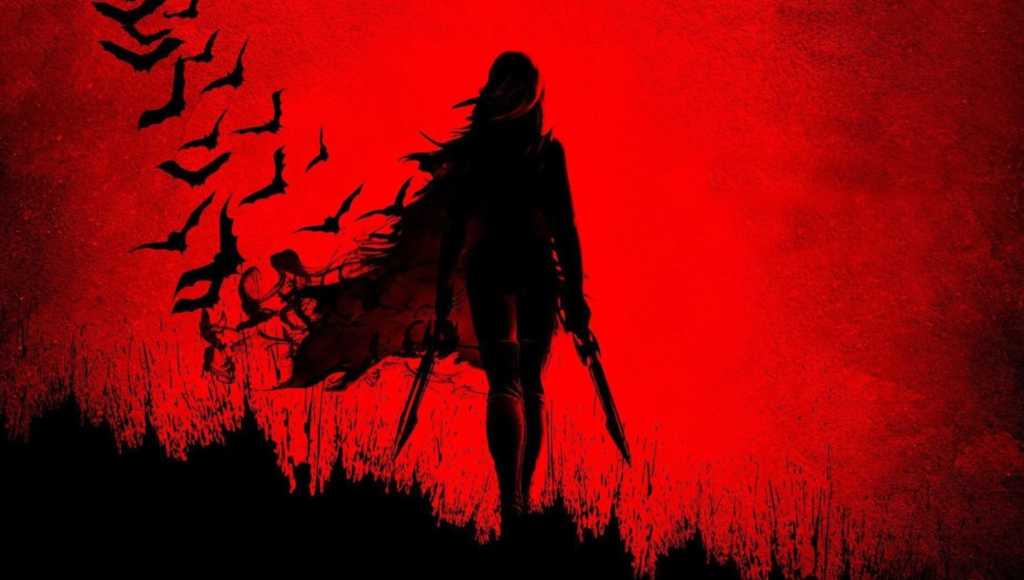
- 黒川 (Kurokawa) – Black river, suggesting flowing mystery and depth.
- 暗村 (Kuramura) – Dark village, highlighting hidden stories.
- 夜森 (Yamori) – Night forest, representing an eerie, untamed presence.
- 影崎 (Kagezaki) – Shadow cape, evoking the unknown beyond the shore.
- 深闇 (Fukayami) – Deep darkness, symbolizing unfathomable mysteries.
- 魔島 (Majima) – Demon island, suggesting a cursed or legendary past.
- 黒崎 (Kurosaki) – Black cape, hinting at danger and power.
- 幽霊 (Yūrei) – Ghostly spirit, evoking supernatural elements.
- 死谷 (Shitani) – Valley of death, symbolizing a foreboding legend.
- 夜空 (Yozora) – Night sky, vast and enigmatic.
- 闇橋 (Yamibashi) – Dark bridge, leading to the unknown.
- 影戸 (Kagedo) – Shadow door, hinting at secrecy and hidden truths.
- 黒森 (Kuromori) – Black forest, mysterious and impenetrable.
- 冥海 (Meikai) – Dark sea, representing the abyss and lost souls.
- 夜陰 (Yain) – Night shade, suggesting stealth and secrecy.
- 黒鐘 (Kurokane) – Black bell, resonating with ominous echoes.
- 鬼村 (Onimura) – Demon village, a place of dark legends.
- 影嶋 (Kageshima) – Shadow island, shrouded in myth.
- 幽城 (Yūjō) – Ghostly castle, abandoned yet filled with history.
- 滅影 (Metsuei) – Vanishing shadow, representing fleeting darkness
FAQs
Q. What are dark Japanese names?
Dark Japanese names often have meanings related to themes like death, sin, shadows, sorrow, or mythical creatures. These names can be found in literature, folklore, and historical contexts, reflecting deep cultural symbolism.
Q. Do dark Japanese names have negative connotations?
Not always. While some names carry meanings like “evil” or “sin,” others symbolize mystery, resilience, or hidden strength. Many are poetic rather than purely negative.
Q. Can these names be used for characters in stories?
Absolutely! Dark Japanese names are popular in anime, manga, and fiction, helping to create deep, intriguing characters with unique identities.
Q. What are examples of dark Japanese names?
- Tsumi (罪) – Means “sin” or “wrongdoing.”
- Akuji (悪事) – Refers to an “evil act” or misdeed.
- Zaiaku (罪悪) – Represents “moral guilt” or vice.
- Kuragari (暗がり) – Means “darkness” or “gloom.”
- Shikyo (死境) – Signifies “verge of death” or fatal moment.
Q. Do dark names have historical or religious significance?
Yes, many names have roots in Buddhism, Shintoism, or ancient Japanese beliefs. Some are linked to karma, punishment, or spirits in folklore.
Q. Can I use a dark Japanese name for myself?
While you can, it’s important to understand the cultural and linguistic nuances. Some names may carry strong meanings that could be misinterpreted in different contexts.
CONCLUSION
Exploring “Dark Japanese Names with Meanings” unveils a fascinating interplay between light and darkness in Japanese culture. These names not only convey rich histories and beliefs but also illustrate the deep-seated fascination with the supernatural. Whether drawn to their beauty or their mystery, the names serve as a reminder of the complexities within cultural identities and the stories they tell.
Discover unique and meaningful names for every occasion at Names Geeko, your ultimate guide to the perfect name!


